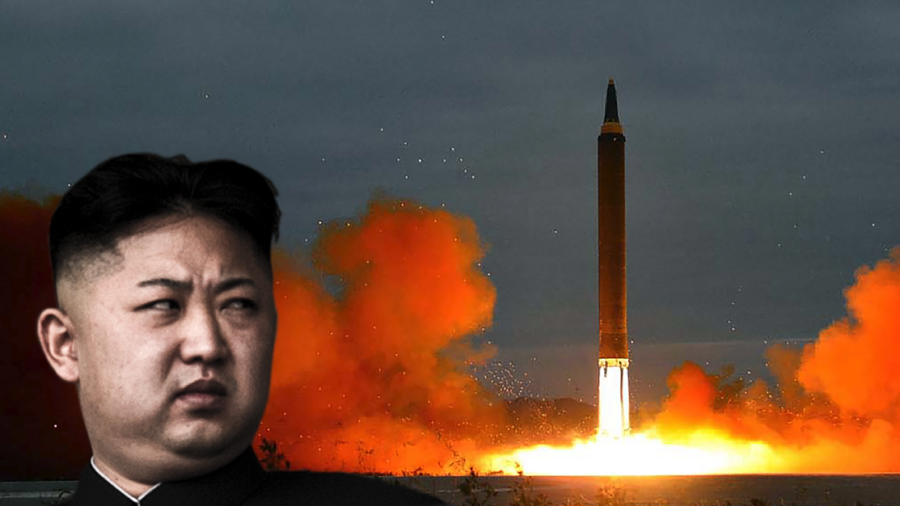North Korean leader Kim Jong Un announced on April 20 that the country will suspend nuclear tests and missile launches. Why did the dictator suddenly decide to submit to international demands to denuclearize after increased nuclear testing throughout the past year?
A longtime Chinese blogger who frequently comments on domestic economic news, with the pseudonym Manzu Yongshi, penned an article on April 23, explaining that the regime’s about-face may have to do with its rapidly declining trade with China as a result of international pressure, threatening its survival.
China is North Korea’s biggest trading partner. According to data from the Bank of Korea, North Korea’s trade with China made up 63 percent of its total trade in 2007. By 2013, that percentage grew to 89.1 percent. Despite sanctions from the international community, China increased its trade with the regime, the blogger noted. Many necessities such as petroleum and medicine is imported from China, while the North Korean regime primarily exports its coal to China.
After 2013, due to North Korea’s continued nuclear tests, the United States and other countries strengthened their sanctions on North Korea. Thus, trade between China and North Korea decreased slightly, but still remained at the scale of $5.06 billion until the end of 2017, according to China’s official customs data.

Due to China’s continued financial support, North Korea was not deterred by the international sanctions and even brazenly violated them, Manzu Yongshi noted.
A recent confidential U.N. report found that in 2017, North Korea had violated sanctions to earn nearly $200 million in banned commodity exports.
In November 2017, U.S. President Donald Trump began pressuring the Chinese regime to follow through on U.N. sanctions to penalize North Korea. The U.S. Treasury Department imposed sanctions on a number of Chinese firms that conducted business with North Korea in violation of previous sanctions. China’s Bank of Dandong was cut off from the U.S. financial system for its involvement in money laundering for North Korea.
China also began to close down North Korean businesses within its borders and instructed banks to stop conducting business with North Korean customers.
The busy border between China and North Korea became deserted.
With the U.S.-China relationship deteriorating under recent trade tensions, China no longer wants to offend the United States on the North Korea issue, the blogger wrote.
And so, trade between China and North Korea has dropped precipitously.
In the first quarter of this year, according to China’s official customs data, total trade between China and North Korea has fallen to $483 million, compared to $1.2 billion in the same quarter last year. That represents a 60.2 percent drop. China’s exports to North Korea also fell by 86 percent.
Following this trend, trade between China and North Korea would fall to about $1.5 billion for the whole of 2018. North Korea would likely lose many goods it has relied on China to provide. This is likely what forced Kim Jong Un to concede, Manzu Yongshi concluded.
Some U.S. lawmakers are skeptical that Kim will keep his promises, however, as Kim described nuclear weapons as a “treasured sword” in his announcement of planned denuclearization, according to a Fox News report.
From The Epoch Times
Recommended Video:

